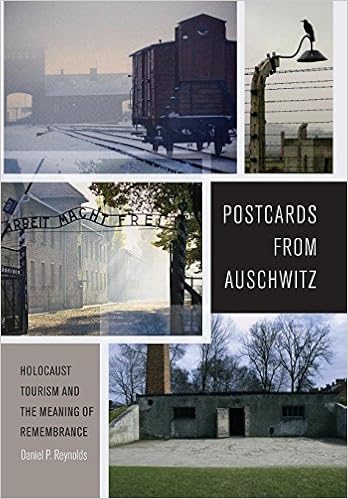
Postcards from Auschwitz is an important intervention into the vexed topic of Holocaust 'tourism.' Reynolds deftly challenges the various criticisms of the 'Shoah business'—its presumed commercialization of suffering, conversion of horror into kitsch, and its putative role in evacuating Holocaust memory of substance. He addresses such received wisdom not by denying its power, but by way of a compelling exploration of the experience of Holocaust memorialization in Warsaw, Berlin, Jerusalem, and Washington, D.C that does not only analyze various national narratives of the event, but also defines the tourist's experience in surprisingly textured and nuanced terms. Incisively scrutinizes the intersection of tourism and Holocaust remembrance .This book . . raises important questions about history, tourism, and genocide. The book is a real eye-opener and should be read by anyone with an interest in contemporary Holocaust memory
"Reynolds lays bare the faulty assumptions about tourism and tourists that undergird the criticisms leveled at sites of Holocaust commemoration. His own scholarship, by contrast, takes seriously the abilities of tourists to reflect just as critically as any of the scholars who write about the topic, and shows how their presence (including their own discomfort with the idea of tourism) helps Holocaust tourism remain an open-ended process of meaning-making. This is tourism studies at its finest. Reynolds' authorial voice is pitch perfect - sophisticated without being pedantic, readable without being simplistic.
"Postcards stand for the superficiality of tourism, but also have a flip side in which the viewer can express agency, sometimes undercutting the message of the glossy picture. Reynolds is one of the few scholars to take both Holocaust memory and tourism seriously. Among the questions the book explores are: How does one portray the victims’ suffering without turning it into a spectacle? How do memorial sites negotiate between historical verities and traumatic experience? What agency do tourist publics have in reading and interpreting Holocaust sites and what are the responsibilities of site managers in responding to them? Where does one draw the line between knowledge-seeking and voyeurism? The result is a thought-provoking, multi-disciplinary account of the ethics of memory and responsibility in an age of snapshots and selfie shares.
No comments:
Post a Comment